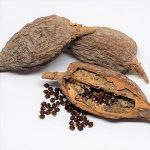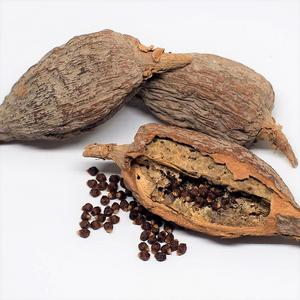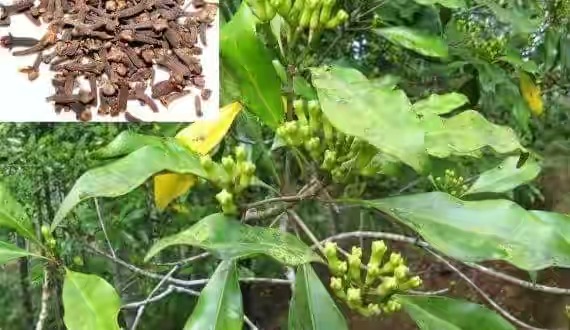Alligator Pepper: Nutritional Value, Side Effects and Health Benefits (Alligator Pepper and Fibroids, pregnancy, ovulation, diabetes).
Aframomum melegueta or Grains of Paradise or Alligator pepper or Melegueta pepper or Kumfa (Hausa) or Atare (Yoruba) or Osi-oji (Igbo): A spice with similar properties as the ginger.
DESCRIPTION
Aframomum melegueta is a very important member of the family Zingiberaceae. It is endemic in the tropical rainforest of West Africa, where it occurs in the coastal forest zone from Senegal to Cameroon.
The fruit colour may be red or yellow with a smooth surface that wrinkles when dried while the number of seeds per fruit also varies. Various studies have indicated that depending on the genotypic differences, the fruit of A. melegueta may contain from 60 to even 2000 seeds per fruit.
NUTRITIONAL VALUE
Besides its rich aroma, the seeds of A. melegueta are nutritionally rich, containing high concentrations of calcium, potassium, iron as well as vitamins (thiamine, riboflavin, niacin and vitamin C) that confer medicinal properties to the plant.
Alligator pepper is a herb, where the seeds have traditional usage mostly as a pungent spice to season foods with. This herb is botanically in the same family as Ginger and shares many bioactives, and has been (medicinally speaking) traditionally used mostly for digestive and intestinal health with some other sporadic uses not related to food.
When looking at the scientific evidence, most of it is preliminary and a full compositional analysis does not appear to exist at this moment in time. It seems very related to ginger, and has many of the same bioactives.
HEALTH BENEFITS OF ALLIGATOR PEPPER
Alligator pepper is one of such plants having both medicinal and nutritive values, and popularly used as herbal remedy against a wide range of ailments, both in Nigeria and several other countries of the world. The pepper is widely used by many cultures in Nigeria for various purposes. It is served along with Kola nuts and alcoholic drinks to guests as entertainment. It is a common ingredient in pepper soup, a spicy delight in most parts of West Africa.
Aframomum melegueta appears to have some anti-diabetic and anti-obese mechanisms, although neither are remarkable (the one human study conducted in humans has confirmed an increase in metabolic rate, but required both cold exposure as well as brown fat on the person in question as prerequisites).
The aphrodisiac and testosterone boosting properties are both preliminary (with the former not appearing too potent, relative to other herbs) and the anti-oestrogen mechanisms are still fairly preliminary and of unknown practical relevance for fibroid.

Aframomum melegueta may be promising for a spice to add to a diet in hopes of body re-composition and particularly for men, but there is overall a lack of evidence to support its usage as a supplement and higher oral doses may still have some toxicity associated with them (which needs to be more thoroughly investigated).
The seeds of Aframomum melegueta are widely used as condiments as well as a flavouring for dishes in Nigeria. Various parts of this plant have been claimed to possess medicinal properties.
The seeds are used for diarrhoea, stomach-ache, as a carminative, and for inflammatory painful conditions.
The natives of Kenya have used the roots as a remedy for dysentery or snake bite. The juice extracted from the stems and leaves are used by the Gabonese for wound and intestinal infections. Gabonese women also use alligator pepper to stimulate ovulation.
Experimental studies have demonstrated its antiulcer, cytoprotective, and antimicrobial properties. Seed extract of A. melegueta possesses anti-inflammatory activity.
Alligator pepper helps regulate blood sugar and protects diabetics against the complications of diabetes milletus such as blindness and leg ulcers.
SIDE EFFECTS OF ALLIGATOR PEPPER
There have been reports of blurred vision and double vision in some persons that ate alligator pepper. Taking large quantity of alligator pepper in the first trimester of pregnancy may cause miscarriage. Other than these reported side effects, alligator pepper is generally safe.
These are the thoughts of:
Sa’eed Halilu Bawa
Senior Lecturer (Associate Professor) at University of the West Indies, St. Augustine Campus, Trinidad.
Studied Food and Nutrition Sciences, Dietetics at Kaduna Polytechnic, Nigeria; Warsaw University of Life Sciences, Poland.

























The site is very good and informative
Thank you